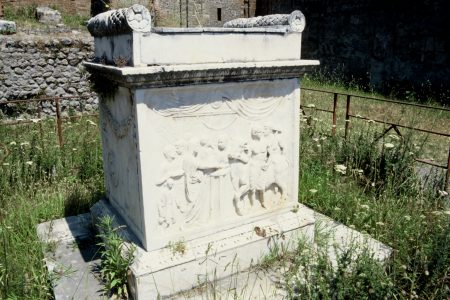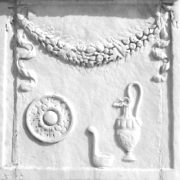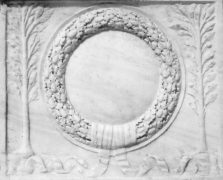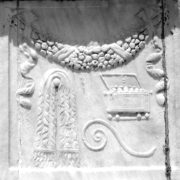
|
This sculptured white marble altar in the Temple of Vespasian depicts a bull being
led to sacrifice. When animals were slaughtered as an act of worship, their
meat was eaten by the worshipers or sold in the marketplace. Whether a
Christian could eat of this meat created a conflict in the church at Corinth
in the first century. (See I Corinthians 8:4ff and 10:25.) Some Christians
viewed an idol as nothing more than stone or wood, while others thought it
an abomination. To eat at a barbeque at a temple in Corinth was not viewed
by most as consistent with Christian principles.
On the sides of this altar appear items used by the priests in worship. Interestingly, these articles can be identified by some religious leaders today as things used in modern worship in some churches. It was a common practice for centuries for pagan articles and customs to be "Christianized" rather than be discarded entirely. A statue or holiday dedicated to a particular goddess would be renamed to honor Mary, mother of Jesus, for example. Then pretty much the same activities and festivals continued, but with a more "Christian" focus. Today Greek and Italian cities have patron saints, replacing the patron gods and patron goddesses of paganism. On the back side of this altar in the Temple of Vespasian is a depiction of a circular wreath. |



